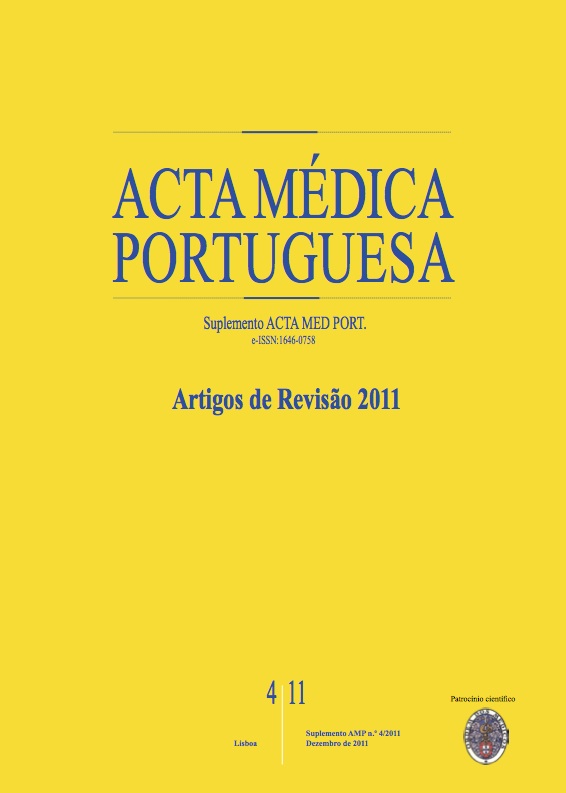Utilização da valeriana nas perturbações de ansiedade e do sono: qual a melhor evidência?
DOI:
https://doi.org/10.20344/amp.1572Resumo
Anxiety disorders and sleep problems are common in the general population and are a cause of frequent consultations in primary care. These problems have significant impact on quality of life and functionality of individuals. The extracts of valerian root have been widely used for a long time by the population and physicians, for their sedative effects, hypnotic and anxiolytic. It is therefore urgent to know what are the benefits and the risks of using this substance for the treatment of anxiety and sleep disorders.To investigate the efficacy and safety of valerian for the treatment of anxiety and sleep disorders.A research was carried out for clinical practice guidelines, systematic reviews (SR), meta-analysis (MA) and randomized controlled trials (RCT) in Pubmed, sites of evidence-based medicine and Índex das Revistas Médicas Portuguesas using the MeSH terms valerian, anxiety and sleep disorders, and respective DeCS, analyzing articles in English, Spanish, French or Portuguese, published between January 2000 and March 31, 2010. We also reviewed references of relevant articles. We used the Strength of Recommendation Taxonomy (SORT) from American Family Physician to evaluate the level of evidence and assigning the strength of a recommendation.We found 173 articles of which four were selected which met the inclusion criteria: a meta-analysis, a SR and a RCT concerning the use of valerian in sleep disorders, and an SR on the use of valerian in anxiety disorders. The evidence is insufficient regarding the efficacy of valerian in the treatment of anxiety disorders (SOR A). There seems to be some evidence of the effectiveness of valerian for treating insomnia, which is limited by the quality of existing studies (SOR B). Valerian root is well tolerated and safe, with infrequent and benign side effects (SOR A).The evidence is currently insufficient to recommend the use of valerian for the treatment of anxiety disorders. The evidence in insomnia is limited by the contradictory results of studies reviewed and their methodological problems, although it seems to have some effect in mild to moderate insomnia. Despite that, valerian is a safe substance. More RCT are needed, with samples of adequate size, with standardization of measures to assess quality of sleep and levels of anxiety and standardization of dose, type of preparation of valerian used and the time for its use.Downloads
Downloads
Como Citar
Edição
Secção
Licença
Todos os artigos publicados na AMP são de acesso aberto e cumprem os requisitos das agências de financiamento ou instituições académicas. Relativamente à utilização por terceiros a AMP rege-se pelos termos da licença Creative Commons ‘Atribuição – Uso Não-Comercial – (CC-BY-NC)’.
É da responsabilidade do autor obter permissão para reproduzir figuras, tabelas, etc., de outras publicações. Após a aceitação de um artigo, os autores serão convidados a preencher uma “Declaração de Responsabilidade Autoral e Partilha de Direitos de Autor “(http://www.actamedicaportuguesa.com/info/AMP-NormasPublicacao.pdf) e a “Declaração de Potenciais Conflitos de Interesse” (http://www.icmje.org/conflicts-of-interest) do ICMJE. Será enviado um e-mail ao autor correspondente, confirmando a receção do manuscrito.
Após a publicação, os autores ficam autorizados a disponibilizar os seus artigos em repositórios das suas instituições de origem, desde que mencionem sempre onde foram publicados e de acordo com a licença Creative Commons









